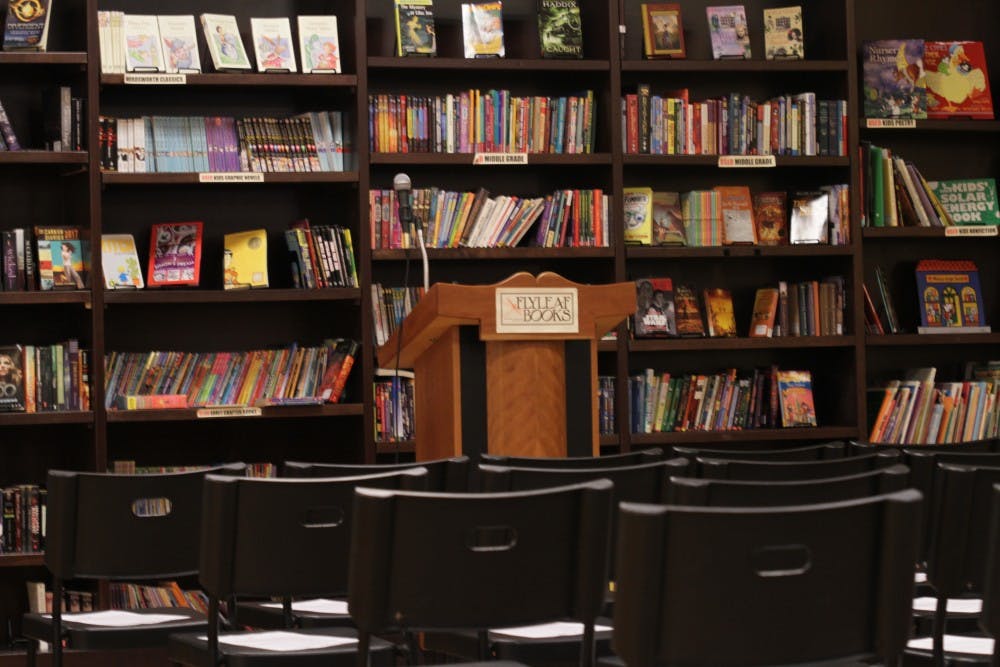This past Sunday, after a nauseatingly large breakfast at The Root Cellar, I staggered over to Flyleaf Books. While there, I bought “Her Body and Other Parties” by Carmen Maria Machado, one of the books I’d been casually reading while standing in bookstores (read: stealing) since it came out.
I found my boyfriend in the back corner looking at a book about coffee lids, which serves as a testament to the ceaseless variety of strange and interesting books provided at Flyleaf. Things I love about Flyleaf: its variety, excellent staff recommendations and decently large used book section. Things I don’t love: its location. I never visited the store before sophomore year, since it’s largely inaccessible without a car or a substantial amount of willpower.
My real home freshman year, for reasons of location and cat presence, was The Bookshop. For most passersby, The Bookshop was the strangely dark, narrow bookstore with the inexplicable cat constantly sitting in its window. For those of us who knew and loved The Bookshop, it was a constant source of new, cheap reading material. One time, I ran into a professor of mine there, and he insisted on buying me several books that he thought I’d enjoy. That’s just the kind of place The Bookshop was: community-oriented, affordable, variegated and quiet. I was crushed by the news of its closing this past summer.
Aside from my personal grief, though, the closing of The Bookshop created a real hole in Chapel Hill. Without its quirky, convenient offerings, the immediate Chapel Hill area (for students without transportation) has become a literary desert of sorts. Although the Student Stores bookstore has an impressive offering of current popular fiction, its Barnes and Noble inspired prices are too steep for any kind of frequent purchasing, and its selection is — at the risk of sounding unbearably pretentious — extremely mainstream, with very little to shock or delight the curious explorer. And the “popular fiction” area of the Undergraduate Library is shockingly sparse: a few small shelves, stocked with a strangely eclectic collection of new-ish fiction.
In the wake of The Bookshop’s tragic demise, we need a good, local, independent bookstore. These kinds of bookstores are good for all aspects of a literary community: author, consumer and larger town or community. For authors, a local bookstore is often their first promoter. And authors, as people who love books, love independent bookstores. There is, fittingly enough, a whole book on the subject. Additionally, independent bookstores can reflect the needs of their specific community in a way that chains or online sellers can’t. Stores like Eso Won Books in Los Angeles, with its mission to promote African-American voices, are intellectual hotbeds of activity for communities looking to learn about and analyze the literary cultural landscape.
Ultimately, independent bookstores, above all, characterize their surrounding communities. The places I’ve lived so far are all inextricably linked, for me, to my favorite of their uniquely curated, independent bookstores — Politics and Prose at home in DC; Saint George’s in Berlin; Flyleaf, for now, here. Local bookstores imbue towns like Chapel Hill with literary character. That’s something a generic Student Stores bookstore can’t, or at least shouldn’t, do.




